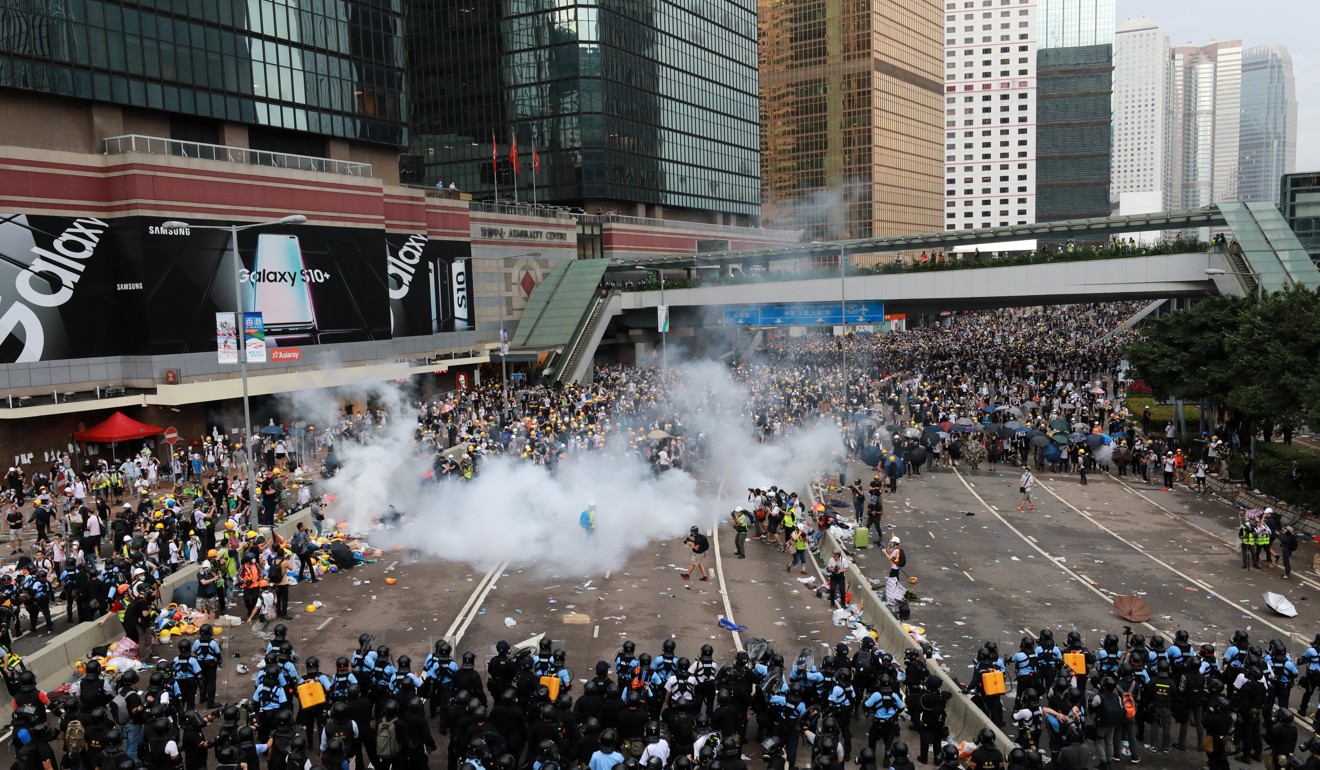
Hong Kong protests: no evidence patients’ data was leaked to police by hospital where demonstrators were arrested, probe finds
- But labels with personal information of patients at Queen Elizabeth Hospital can be passed to police officers upon request, report says
- Probe launched by Hospital Authority in late June after it received two complaints over the handling of patient information
An investigation into a Hong Kong hospital which allegedly gave police the personal information of patients, leading to their arrest over a protest in June, has concluded there was no evidence of any leak.
But the probe into operations at the accident and emergency department of Queen Elizabeth Hospital in Yau Ma Tei found that gummed labels with patients’ personal information could be passed to police officers upon request, resulting in the practice being suspended.
The findings came on Tuesday, rounding off a probe launched by the Hospital Authority in late June after it received two complaints over the handling of patient information.
It had been claimed that A&E workers released the personal details of protesters seeking treatment following intense clashes around the government headquarters in Admiralty on June 12, leading to at least three arrests at the hospital.

Police never revealed the number of arrests in hospitals related to the protest.
The authority, which manages the city’s public hospitals, had previously said it never authorised medical staff to report protesters to police, but the public remained sceptical.
School pledges response to student demands on campus footage of teen
The hospital said there was no evidence of any A&E staff passing patient information directly to third parties, including police officers. The investigation, carried out by a panel of three, also found that the emergency unit was always congested because of space constraints.
Health care workers also faced great challenges in protecting patient privacy when handling a large number of people, the investigation report said.
“Moreover, there was no clear segregation between the accident and emergency department triage station and the patient waiting hall. The physical design is suboptimal for protecting patient privacy,” the report added.
The investigation panel said it found there was a long-standing practice of police requesting gummed labels with personal information of patients from the admission office for law enforcement purposes.
Burglars exploiting Hong Kong protests to strike while police distracted: force
It said that although it found no evidence of staff passing on information in the cases concerned to police officers, the practice had been suspended immediately.
The panel made several recommendations to improve the physical setting of the emergency unit to better protect patient privacy, including the delineation of clinical zones with prominent floor signage at the entrance of the triage station and consultation cubicles; and installing a transparent partition at the triage station.
The hospital said it accepted the findings and had suspended the practice regarding the labels.
It had also implemented improvement works in the physical settings based on the recommendations.
The authority informed the privacy watchdog, the Office of the Privacy Commissioner for Personal Data, about the investigation’s findings and recommendations.
The panel consisted of Dr Cheung Nai-kwong, deputy chief executive (operations) at Prince of Wales Hospital and an accident and emergency department consultant; Eric Tang Siu-keung, general manager (nursing) for hospitals in Kowloon East; and Queen Elizabeth Hospital governing committee member Yip Shiu-kwong.
Hong Kong police admit ‘aggressive tactics’, amid tensions with media
Alex Lam Chi-yau, of rights group Patients’ Voices, said the findings were too generalised and failed to answer all the public’s questions. Lam said the panel said only that there was no evidence to show A&E staff had released patients’ data to police, but overlooked the public’s concerns over allegations relating to other departments.
Referring to the practice on labels, he said the panel should tell the public how often police had made the requests to the admission office and how many patients were involved.

